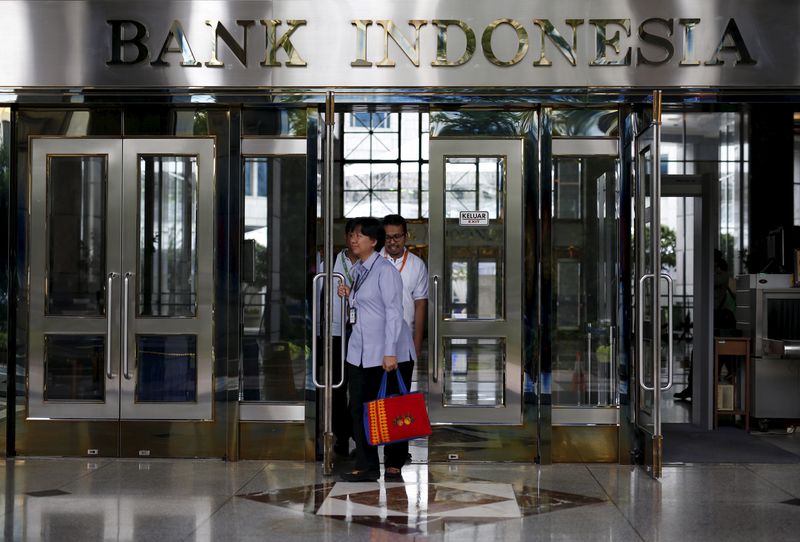By Rahul Trivedi
BENGALURU (Reuters) – Bank Indonesia (BI) will hold its key interest rate steady on Wednesday to support the rupiah, according to a narrow majority of economists in a Reuters poll, who decisively expected a rate cut on Dec. 18 just a month ago.
While domestic factors such as softening economic growth and cooling inflation were conducive for a rate cut, the rupiah’s near 6% drop against the dollar from a September peak was likely to give BI enough reason to pause.
The central bank is mandated to keep the currency stable.
Just over 50% of respondents, 17 of 31 in the Dec. 9-13 Reuters poll, predicted the central bank would keep its benchmark seven-day reverse repurchase rate at 6.00% on Wednesday.
“We expect BI to err on the side of caution and keep the benchmark rate on hold this month,” said Radhika Rao, senior economist and executive director at DBS Bank in Singapore.
“While inflation and growth developments tick the box for the BI to retain a dovish bent, weakness in the currency is a bigger bother for policymakers in the face of U.S.-driven uncertainties.”
However, a significant minority, 14 of 31, expected the bank to cut a quarter-point as Indonesian inflation was near the lower end of BI’s 1.5-3.5% target range last month and domestic consumption, the biggest driver of growth, moderated last quarter.
Median forecasts showed economists were predicting shallower interest rate cuts, down from 100 basis points in the last three polls to 75 basis points from the current level by end-2025.
The shift in view for shallower rate cuts was in line with what economists expected from the U.S. Federal Reserve – three quarter percentage point cuts – next year, a separate Reuters poll showed.
Diminishing expectations of aggressive rate cuts from BI and the Fed were largely attributed to proposed tariffs by U.S. President-elect Donald Trump, which are expected to be inflationary for the U.S. economy, keeping the dollar stronger for an extended period.
“While BI retained an easing bias, it acknowledged that the scope for rate cuts has become more limited following U.S. political developments and the associated prospects of higher U.S. inflation, treasury yields, and a stronger U.S. dollar,” noted an economist from ANZ.
(Other stories from the Reuters global economic poll)



